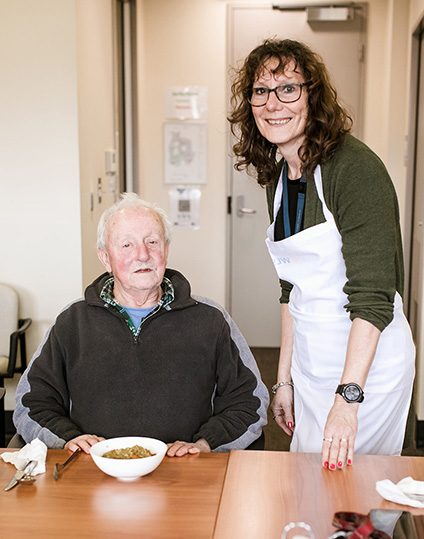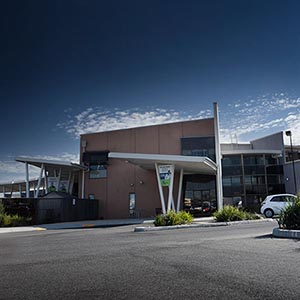Their personal appearance
Noticeable weight loss, poor personal hygiene and a general unkempt appearance (unironed clothes, unshaven face or un-brushed hair) are tell-tale signs your parents are struggling. Getting in and out of the shower, doing the laundry or preparing meals might have become too physically demanding for them. Look out for noticeable bruises on arms and legs, as these can signal trips and falls.
The state of the home and backyard
Piles of dirty laundry, overgrown lawns and gardens, dirty windows and a build-up of dust and clutter can be red flags, especially if your parents are usually house-proud. Again, day-to-day tasks like housekeeping might have become too physically challenging for your parents.
Mail piling up, bills unpaid
If your parents’ memory or eyesight has deteriorated, once simple tasks like collecting the mail or paying bills can become a burden. An easy solution for your parents may be to do nothing, but it might be worth setting up auto-payments to avoid electricity and water getting switched off.
Food in the fridge has gone off, or there’s depleted stock in pantry and fridge
This is a sign that carrying groceries or even getting to the supermarket is becoming too much. Perhaps your parents don’t have the energy to prepare nutritious meals, or they’ve burnt or cut themselves cooking dinner before and are afraid of hurting themselves again. Ask your parents how often they go grocery shopping and whether they’re still cooking their favourite meals. This might prompt them to consider the challenge of cooking, and ask for help.
Damaged bathroom fixtures
Loose towel rails or ripped shower curtains can indicate your parents are using these bathroom fixtures as a support to hoist themselves up, or prevent themselves from falling. An occupational therapy assessment can determine whether bathroom modifications are needed to keep your parents safe.
Loss of licence, or lost confidence in driving
If your parents are no longer legally allowed to drive, or they don’t feel comfortable sitting behind the wheel, it can be much harder for them to attend appointments, go grocery shopping or stay connected with their community, which is key to mental wellbeing. Ask your parents how they get into town these days and get them thinking about taking public transport, asking family and friends for a lift or joining local planned activity groups when it is safe to do so.
They no longer do the things they once loved
Are your parents keen to return to the Lions’, bridge, bowls, craft or golf club? Have they caught up for coffee and cake with their closest friends? If not, consider whether COVID-19 is behind this or if something more worrying is going on. Getting out of the house might be a physical burden. It could be too much to remember when and where their planned outings are. Or, they might feel ashamed about their age, health or memory and so they’ve started to withdraw socially. Have a candid conversation with your parents and discuss how they can maintain social and community connections in a COVID-safe way.
So, my parents are struggling at home. What next?
If you’ve noticed any of the above changes in your parents, it might be time to consider how to raise the issue with them and look at what help is available.
- If you have siblings, raise your concerns with them first. Swapping notes may help build a fuller picture of how your parents are coping.
- Do some research. The official guide to home help is the Australian Government website myagedcare.gov.au
This provides useful information on how the government funds in-home care services. If you decide to proceed with some help for your parents, you will need register them there. But… - …it can also be a daunting website to navigate. Another option is to just have a chat with someone who can give you some easy-to-understand advice. That’s where we can help. Latrobe Community Health Service has been providing in-home care services for more than 20 years, and we know the aged care system inside-out. If you would like a general chat about options for you and your parents, give us a call on 1800 242 696 (or request a call back).
As confronting as it can be to realise mum or dad is slowing down, it’s not all doom and gloom. There are plenty of options for home help, and there’s no reason your parents can’t thrive at home for years to come. If you’d like to read more about home care packages, you can view our complete guide here:
Need friendly, easy-to-understand advice on home care for your parents?
Fill out the form below, and we’ll call you within one business day.



